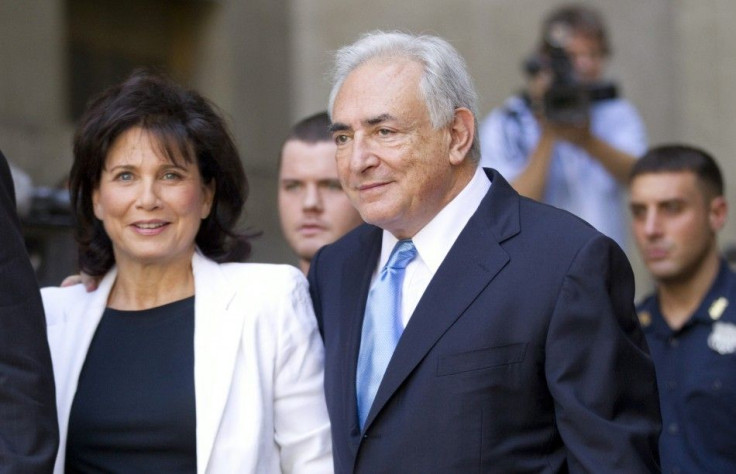The Strauss-Kahn Interview: France's Reaction and 5 Take-Aways

Dominique Strauss-Kahn spoke publicly about his sex-assault trial in the U.S. for the first time since returning to France.
During an interview on French television station TF1 on Sunday night, the former head of the International Monetary Fund expressed his infinite regret over his affair with hotel maid Nafissatou Diallo in May.
The nine-minute sexual encounter resulted in a criminal rape charge, and instantly cast Strauss-Kahn into the international spotlight. Although the charges have been dropped, he hasn't come out of the public's consciousness, a fact which was affirmed by the interview's 13 million television viewers in France.
Here are the five take-aways from the TF1 interview.
1) Politics
Before the rape scandal began, Strauss-Kahn was considered the top candidate to be France's next president.
During the interview, Strauss-Kahn confirmed that he had planned to run for office, and added that he had made a pact with prominent fellow Socialist Party member Martine Aubry. The two agreed that whoever was best suited to run during the October primaries would do so.
The former I.M.F. chief is certainly not the best candidate anymore, and now Aubry is one of two Socialist front-runners, along with François Hollande.
Nonetheless, some French critics feel that the scandal, combined with Strauss-Kahn pact comments, have irrecoverably damaged the Socialist party in general, and Aubry in particular.
“Do I look like a substitution candidate? Aubry told France's Canal Plus TV. The problem was to know who would be a candidate and who was best placed. The decision hadn’t been made [when Mr Strauss-Kahn was arrested] and when the time came, I made my decision and announced mine.
I am the candidate France needs,” she added.
2) Immoral, but that's it
Strauss-Kahn said he committed a moral fault of which I am not proud in that New York hotel room. He did not say that he was guilty of any criminal act, nor he did apologize to the maid, France, or anyone. He did mention the infidelity against his wife Anne Sinclair, calling it “a failing vis-á-vis my wife.
He also brought along the prosecutors' report as both proof and as a prop, proudly displaying it during the questioning.
“What happened was without violence or constraint or aggression or any criminal act. The prosecutor says that, not I, Strauss-Kahn noted.
3) Conspiracy
During the initial arrest in May, Strauss-Kahn alleged that the arrest in his Sofitel Manhattan hotel suite could have been concocted by his enemies as a ploy to ruin his name.
When discussing the event Sunday night, he again inferred that someone could have tipped off police.
A trap? It's possible, Strauss-Kahn told the reporter. A plot? We'll see.
4) This isn't the end of his troubles
Not only is he now unemployed and his political career stalled (some would argue permanently), Strauss-Kahn still has a number of legal troubles to deal with. New York prosecutors dropped the criminal case against him, but Strauss-Kahn still faces a civil lawsuit from Diallo, who is suing him.
Additionally, French journalist Tristane Banon has already filed a formal complaint against Strauss-Kahn, whom she says tried to rape her in 2003. Banon was interviewed by Canal+ on Monday night, and could provide more damning details about the former bank chief.
Prosecutors in Paris are reluctant to open the Banon case, but increased media attention might push them toward trial.
5) New Found Respect for Women?
“I have respect for women, I understand their reaction, I understand it they are shocked. I paid heavily, I'm still paying, Strauss-Kahn explained.
He also added that the case has made him a more serious individual and that he has forever lost the lightness for his pre-scandal life.
Yet, despite the comments, he may not have won back any sympathy. Many French critics found Strauss-Kahn awkward, dismissive and distasteful during the interview, and a number of people thought the television appearance was more publicity-stunt that apology.
© Copyright IBTimes 2025. All rights reserved.





















